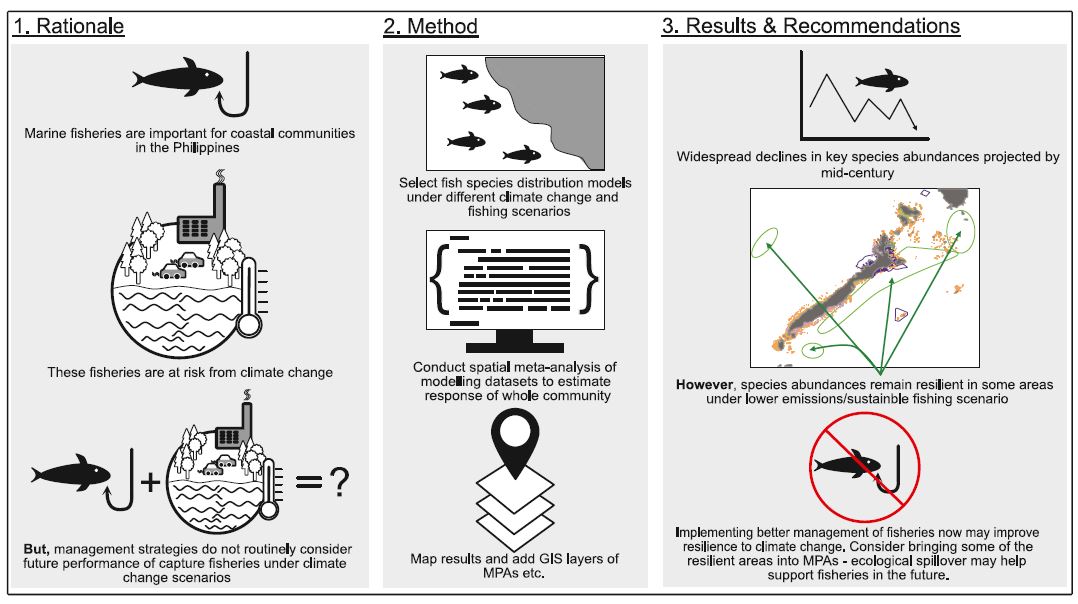March 25, 2024 | Science of The Total Environment | Source |
Introduction: This research conducted by researchers from Plymouth Marine Laboratory in UK and Western Philippines University examine the impact of climate change on marine fisheries in Palawan, Philippines, by analyzing species abundance under different climate and fishing scenarios. The research used the SS-DBEM model to project trends in pelagic (open ocean) and demersal (bottom-dwelling) fish species from 2004 to 2060.
Key findings: Results indicate that pelagic species may face widespread declines by the 2040s, especially under higher emissions scenarios, while demersal species may be more resilient under lower emissions. Climate change hotspots—areas with significant species abundance changes—were identified, and projections showed that key fishing grounds could become vulnerable by mid-century. Sustainable fishing practices and management reforms, such as Marine Protected Areas (MPAs), could mitigate these impacts, but overfishing remains a challenge. The study highlights the need for improved fisheries management and diversification of fishing strategies to adapt to climate change. Expansion of aquaculture and catch diversification could also help reduce the pressure on wild fish stocks. However, careful management of environmental trade-offs is crucial for sustainable food production.
Graphical Abstract





